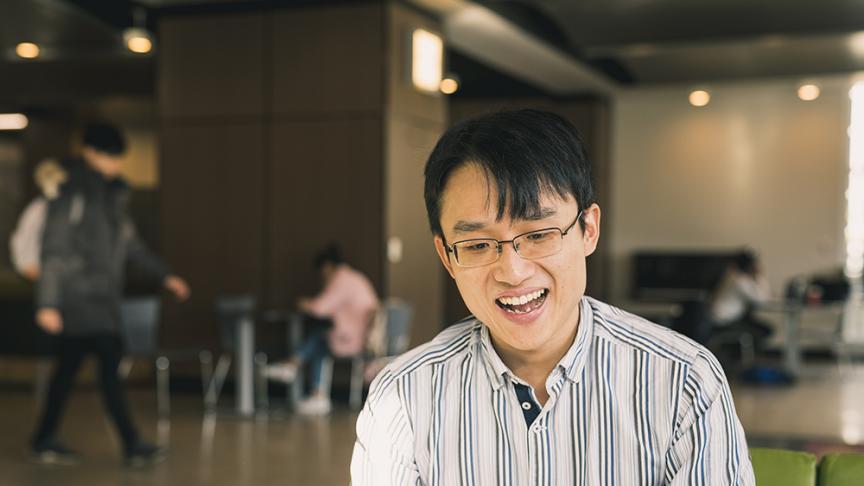Engineering Fresh Faces: Li Xi

BY Ciara McCann
November 27, 2018
Welcome to Fresh Faces. In this series, we’re highlighting over 40 engineering faculty members, all hired in the last five years, who are doing interesting and innovative things in the lab and the classroom.
In 2013, Li Xi landed his dream job as Assistant Professor in the Department of Chemical Engineering at McMaster. In his Fresh Faces spotlight he discusses his upbringing in Suzhou, China, the rewards of connecting with students and decoding experiments on polymer materials.
On living the dream
I have a dream job. I love what I’m doing. I get to pursue the kind of research that I’m interested in with a lot of flexibility and freedom. And I get to connect with young students who give me a lot of energy. I enjoy teaching and giving lectures.
Sometimes you leave a class feeling like, yes, I really did it this time. You feel the energy. If you are very good at stirring up energy within student they’ll respond. They answer questions and ask you questions. Then it goes into a much better cycle.
On learning the value of education from his mother
I’m from Suzhou, China and I come from an underprivileged background. My parents are both working class people. They were both born in the 1950s and they grew up during the time of the Cultural Revolution which led to much political instability in the 60s and 70s. By the time things went back to normal in the 80s, they missed their opportunities to get a good education.
I would say my mother, in particular, believed education was the only way out for me. My parents divorced when I was a teenager so my mother basically single-handedly raised me.

She had this vision to make sure I had the best education possible. I don’t think I’d be where I am today without my mother.
I received my university education at Zhejiang University in China and then moved to the United States to pursue my PhD at the University of Wisconsin–Madison where they have a strong tradition of chemical engineering research. I went to the Massachusetts Institute of Technology and did post doc there. After that, I looked for jobs globally and McMaster was the best place that offered me a job.
On a computationalists, theorists and experimentalists
Most people in chemical engineering are experimentalists. Experimentalists can go to a lab and make it happen. In their eyes computationalists and theorists are the same because both of them never get their hands dirty.
I’d like to be a theorist one day but I’m not smart enough. A theorist makes a prediction based on what they know and what they can deduce from that, whereas computationalists are more like experimentalists because both try to extract knowledge from what they observe.
Experimentalists make observations based on experiments made in the lab. Computationalists make observations based on computer models. So my students and I build computer models trying to understand the performance of polymer materials based on what they are made of. We try to understand what each molecule is doing in the microscopic world, how they interact with one another, and what their motions are like. Based on this, we make predictions of the behaviours of the materials.

We know exactly what every single molecule, every single atom in the system is doing so in a way we kind of attempt to decode what’s happening in the experiments.
Computer simulation techniques have been developed to the point that it is accepted, not only as a research tool, but also as a tool for product and process development for chemical and materials companies such as Exxon, P&G, and 3M.
Right now we’re working on trying to create a computer model for predicting how small-molecule additives improve the properties of polymer materials and how to select new additives that are environmentally friendly. More ambitiously, maybe one day our model will be reliable enough that we can propose new molecules that nobody has synthesized yet – molecules that work better than all existing options.
Inside the lab…
I take naps when no one’s watching. [laughs]
Outside the lab…
My students may be surprised that I’m the one who does most cooking in my household. I don’t get my hands dirty at work so I compensate for that at home.


